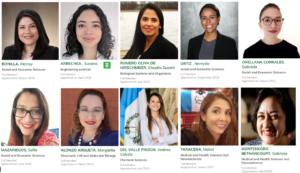#inaspPrinciples for publishers 2: Respect a country’s wish to negotiate as a consortium
Principle 2: Respect a country’s wish to negotiate as a consortium or purchasing club
– for full list of the principles see here –
In this post, we will be considering the importance of working through library consortia. Consortia are critical because they enable a wide range of institutions to purchase and access content, which some wouldn’t be able to do alone. Working in this way is important to countries, but we think it’s also good business practice – as we’ll explain below.
In our previous blog post in this series we looked at the importance of understanding the context of a country. As several of our partners explained, IT infrastructure is often worse outside the capital city and countries have a range of institutions engaged in research, all therefore need access to the literature.
Greater visibility
One of the strengths of a consortium is their reach. The consortium is an easy way to gain visibility in new universities as they open, or existing universities as they get better connectivity. The consortia actively recruit these institutions as members, and publicise and promote the resources available.
Through member services, such as training, consortia raise awareness and use of resources among their members. Consortia have regular contact with their members, and many, like the Consortium of Uganda University Libraries, have functional committees whose role is to promote the use of e-resources. Support from publishers through the provision of promotional materials and sponsorship of events has been a very helpful way to get your name known and build up brand awareness.
Longer term connections
Working with a consortium or equivalent national body allows for longer-term relationships and continuity of subscriptions. Governments may come and go, but the consortium endures political changes. Working with the consortium allows publishers to build up long-term, personal relationships. KLISC has noted that “some agents at times try to entice government bodies to influence institutions without success. I believe that this approach has weakened some of the publishers and agents because member institutions refer them back to the consortium.”
In Pakistan, the consortium allows for continuity in relationships and contracts; security for both sides: “In my view the involvement of the consortium in the discussion is important as we have been involved in licensing and negotiation and hence we will have critical and invaluable input during any discussion. Secondly, the issue of pricing is critical for sustainability, within which the consortium can make a major contribution. Replacement of government officials, which is very common in Pakistan, can end up affecting some of these contracts in the long run.”
Greater likelihood of sales
Beatrice Achieng’ Odera-Kwach of the Kenya Library and Information Services Consortium (KLISC) (and head of the library at the Commission for University Education) says national library consortia allow for the “optimum utilization of funds from member institutions”. This is a good example of the whole being more than the sum of its parts. Many institutions have relatively small populations of active researchers, so active users may be scattered across a country. Many institutions would be unable to sustain the breadth of collections their researchers need but, by joining forces and pooling funding as a consortium, scattered researchers are brought together. Mercedes Tinojo, Library Director of Universidad de las Regiones Autónomas de la Costa Caribi Nicaragüense (University of the Autonomous Regions of the Nicaraguan Caribbean Coast), Nicaragua, points out that entering into a conversation with a national consortium will provide publishers with a better understanding of the market in that country.
Beatrice also explains what can happen when publishers circumvent consortia, “…when the agents ignore the consortium and approach institutions directly, at times they do not succeed because the cost implications are higher.” Trevor Namondwe of the Malawi Library and Information Consortium, MALICO, agrees : “Budget constraints for instance are a reality for old and new institutions. Collective purchasing, including of e-resources, makes much more sense. Although there is increased intake of students in universities, it does not directly translate to more income generation by institutions because as the institutions grow, challenges follow suit.”
More efficient
A single process and deal can reach many institutions, avoiding the need for separate deals and discussions with each institution. In another example from KLISC, Agatha Kabugu (Deputy Director (Planning), University of Nairobi Library), has seen some publishers spending time and energy visiting institutions directly, only to end with no institutional deals. She says: “Where a publisher has insisted on dealing with individual institutions, we have noticed that this has disadvantaged both the publisher and members of the consortium because in most cases the deals have not gone through, thus denying the institutions much needed resources and of course the publisher loses a potential market.” It is also easier to collect payment from a single point – the consortium – than from multiple institutions.
The consortia are also best placed to handle deals for specific resources, and have the means to act on behalf of single institutions or sub-sets of their membership (for instance institutions with a focus on engineering). Mercedes Tinoco, mentions a case where a single institution requested a resource, but this was handled by the consortium, which saved time for both the publisher and the institution while also paving the way should other institutions within the consortium need the same resource in the future.
The consortia play a significant role in handling queries from member institutions about access and troubleshooting, which institutions would otherwise direct to the publishers. All the consortia that INASP works with have a nominated person responsible for access support and troubleshooting and many have teams who can share responsibility for this. The consortium is always the first point of contact for librarians when resources don’t open. Many access issues originate at the institution’s end, so this reduces the noise which would otherwise reach publishers.
Join the conversation by following us on Twitter, and using the hashtag #inaspPrinciples. More information can be found on the Publishers for Development website and registration for the London conference on the 30th June is still open here.




